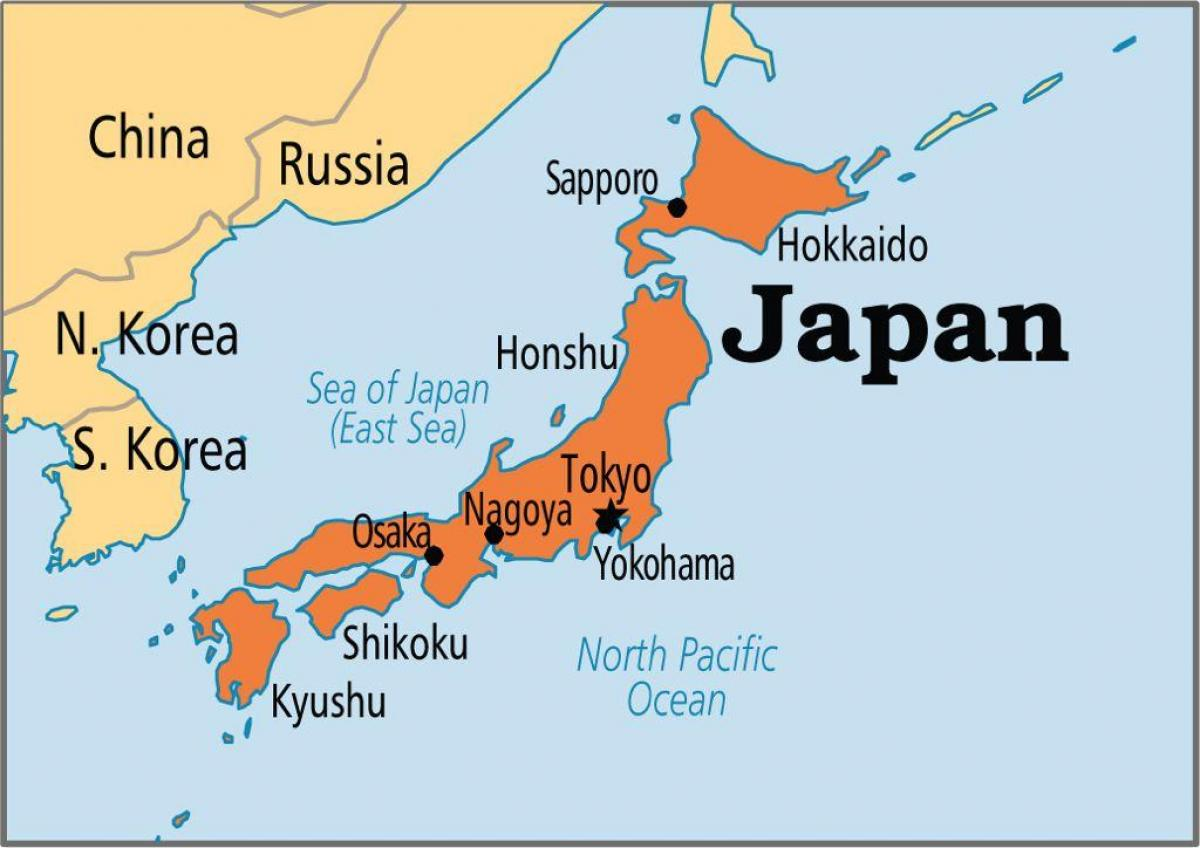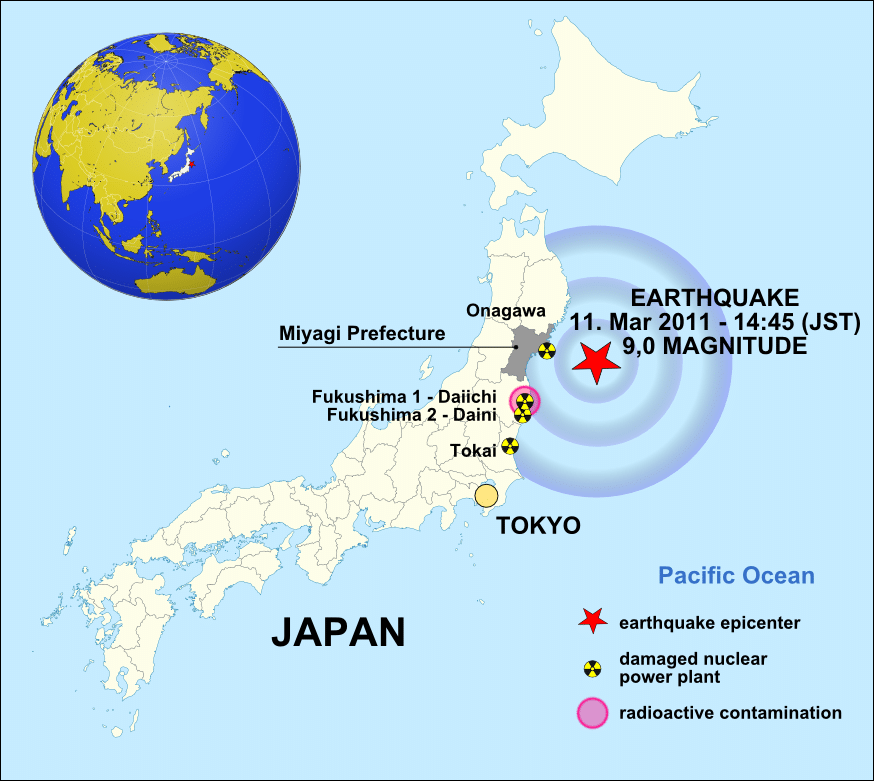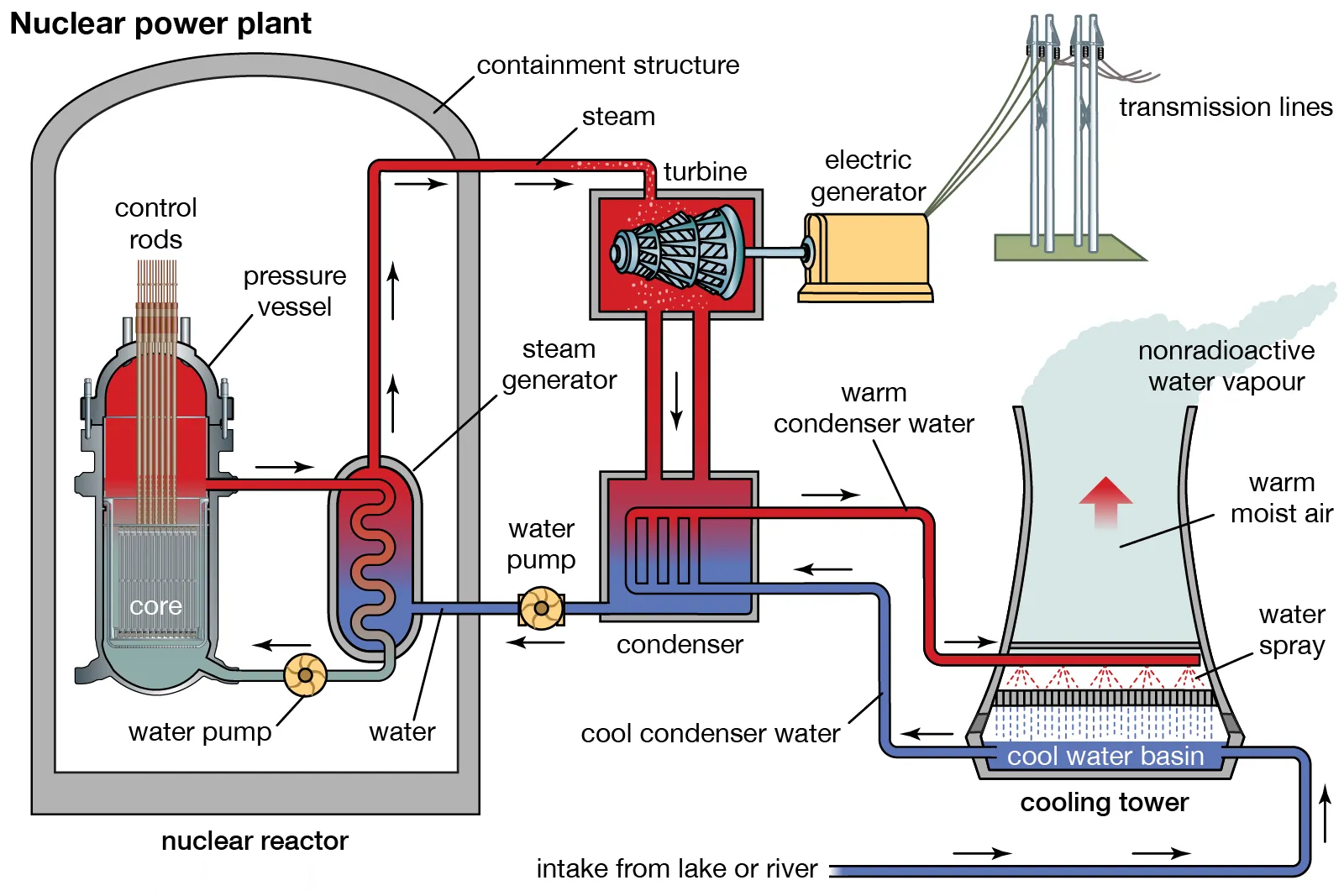Biodiversity & Environment
Fukushima Water Issue
- 03 Jul 2023
- 6 min read
For Prelims: Fukushima nuclear power plant, Neighbouring Countries of Japan, Earthquake, Tsunami, International Atomic Energy Agency, UN General Assembly, UN Security Council
For Mains: Impacts of Earthquake and Tsunami and Nuclear Waste Disposal
Why in News?
Japan's plan to release over 1 million tons of water, which is claimed to be treated but potentially radioactive, from the Fukushima nuclear power plant into the sea, has sparked strong opposition and anxiety among neighboring countries, particularly South Korea.
 |
 |
What is the Fukushima Water Issue?
- About:
- The Fukushima Daiichi Nuclear power plant suffered a meltdown in 2011 after a massive earthquake and tsunami, releasing large amounts of radioactive materials into the environment.
- No deaths were initially attributed to the incident, although around 18,000 people lost their lives as a result of the earthquake and tsunami.
- Since then, Japan has been storing the cooling water for nuclear fuel and rain and groundwater seeping through the damaged reactor buildings in large tanks on site.
- Recent Developments of the Issue:
- The water is treated using a filtering system called Advanced Liquid Processing System (ALPS), which removes most of the radioactive elements except for tritium, a hydrogen isotope that is difficult to separate.
- Japan says it has no space to keep storing the water, and that releasing it into the sea.
- The International Atomic Energy Agency (IAEA) is assisting Japan to release the water into the sea.
Note: Tritium is radioactive and has a half-life of about 12.5 years.
- Raised Concerns:
- South Korea fears that the water release will contaminate its waters, salt and seafood, affecting its fishing industry and public health.
- The increased demand for salt in South Korea has led to a nearly 27% price surge, attributed to both stockpiling and external factors like weather and lower production.
- China has also criticized Japan's plan, questioned its transparency and expressed concerns about the potential impact on the marine environment and global health.
What are the Other Major Nuclear Disasters of the World?
- Chernobyl Disaster (1986): One of the most well-known and severe nuclear disasters, the Chernobyl disaster took place in Chernobyl Nuclear Power Plant in Ukraine.
- A sudden power surge during a safety test led to a series of explosions and fires that destroyed the reactor core and released large amounts of radioactive material into the atmosphere.
- Three Mile Island Accident (1979): This accident occurred in the United States at the Three Mile Island Nuclear Generating Station in Pennsylvania. A partial meltdown of the reactor's core resulted in the release of radioactive gases.
- Kyshtym Disaster (1957): It took place at the Mayak Production Association in the Soviet Union (now Russia).
- It involved a nuclear waste storage tank explosion, releasing a significant amount of radioactive materials into the environment.
What is a Nuclear Power Plant?
- Nuclear power plants are a type of power plant that use the process of nuclear fission in order to generate electricity.
- In nuclear fission, atoms are split apart to form smaller atoms, releasing energy.
- Fission takes place inside the reactor of a nuclear power plant. At the center of the reactor is the core, which contains uranium fuel.
- In nuclear fission, atoms are split apart to form smaller atoms, releasing energy.
- The heat produced during nuclear fission in the reactor core is used to boil water into steam, which turns the blades of a steam turbine.
- As the turbine blades turn, they drive generators that make electricity.
- Nuclear plants cool the steam back into water in a separate structure at the power plant called a cooling tower, or they use water from ponds, rivers, or the ocean.
- The cooled water is then reused to produce steam.
International Atomic Energy Agency
- IAEA is an intergovernmental organization that seeks to promote the peaceful use of nuclear energy and to inhibit its use for any military purpose, including nuclear weapons.
- It was established in 1957 as the world’s “Atoms for Peace” organization within the United Nations family, and governed by its own founding treaty, the Statute of the IAEA.
- It reports to both the UN General Assembly and the UN Security Council, and is headquartered at the UN Office at Vienna, Austria
- In 2005, it was awarded the Nobel Peace Prize for their work for a safe and peaceful world.
UPSC Civil Services Examination, Previous Year Questions (PYQs)
Prelims
Q1. The function of heavy water in a nuclear reactor is to (2011)
(a) Slow down the speed of neutrons
(b) Increase the speed of neutrons
(c) Cool down the reactor
(d) Stop the nuclear reaction
Ans: (a)
Mains
Q. With growing energy needs should India keep on expanding its nuclear energy programme? Discuss the facts and fears associated with nuclear energy. (2018)





